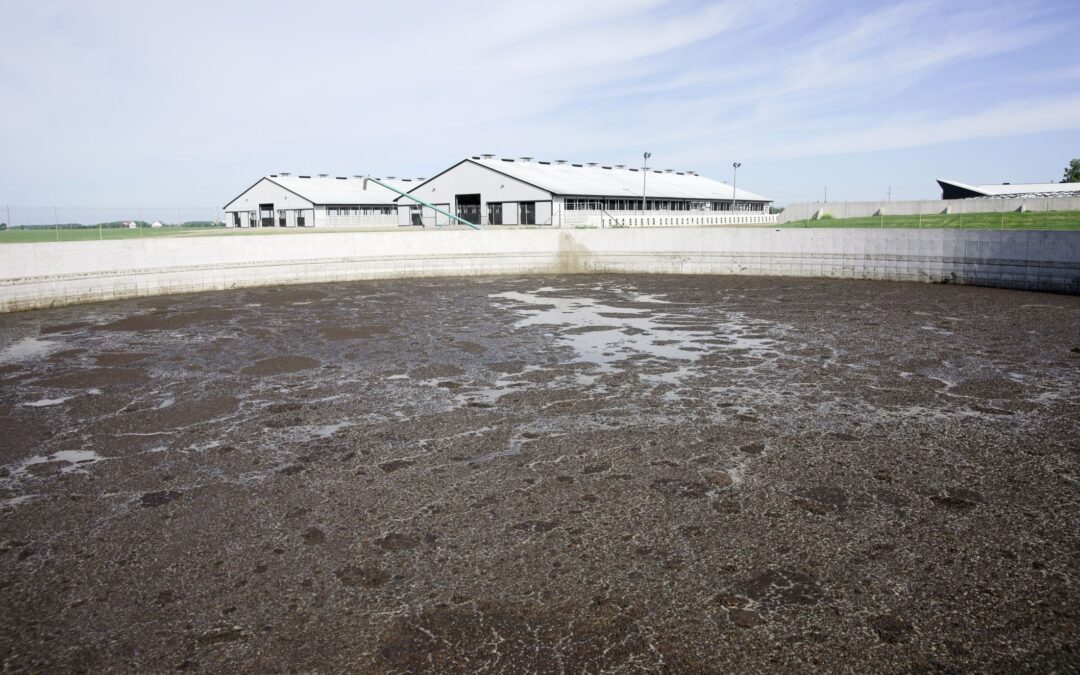As environmental regulations become more stringent, solid waste management requirements in industry and agriculture are changing. In order for businesses to ensure that their project keeps up with these regulations and achieves their health, safety, and environmental goals, they must employ strategic and effective solids management solutions. Thankfully, recent advances in equipment, engineering and industrial management have led to innovative solutions that not only address these challenges, but also improve the efficiency and economic viability of agricultural and industrial pursuits. In this article, we will take a closer look at solids control in agriculture, mining, and oil & gas in order to better understand why solids management is a critical component of a well-managed and productive project.
Mechanical Separation Using Centrifuges
The waste produced by agricultural, mining, and oil and gas operations often comes in the form of wet semi-solids, also known as solid-liquid slurries or sludges. Before these byproducts can be stored, disposed of, or recycled, the water must be separated from the solids, which is often achieved through the use of specialized industrial centrifuges. In a process called “dewatering”, centrifuges leverage the power of gravity to separate solids from liquids by creating a strong centrifugal force via high-speed rotation. Dewatering is a central component of both solid management and wastewater management, since it has the dual benefit of decreasing the volume and weight of solid waste while simultaneously freeing up a usable supply of repurposed water.
Solids Control in Agriculture
Every year, dairy and livestock farming produces several billions of tonnes of animal waste in the form of wastewater and animal effluent. As a solid-liquid slurry, this effluent is a byproduct with high mass and volume, which possesses significant challenges when it comes to limited-capacity lagoon storage, soil stabilization, and transportation costs. In its unrefined state, it can be both operationally hazardous as well as ecologically toxic, containing high concentrations of phosphates and nitrates that are harmful to environmental and human health.
It is for these reasons that proper handling and treatment of these byproducts is not only of critical importance to industry leaders, it is also highly scrutinized by the public and environmental regulatory agencies. Luckily, thanks to technological advancements and innovations in solids management strategies, the majority of what was once considered harmful agricultural waste can now be safely repurposed into inert or ecologically beneficial solid materials. By separating effluent into its solid and liquid constituents using centrifugal force, industrial agriculture projects can reduce the weight and volume of their recovered solids, making it economically viable to transport their manure products to municipal or agricultural producers in need of soil nutrients. After processing with centrifugal solids-management systems and subsequent treatments, effluent is transformed into manure, a safe and marketable product.
Solids Control in Mining
In order to access the valuable ore and mined materials, several stages of mine pit opening have to be completed. At each of these stages, excess solid materials such as waste rock, gangue, and mine tailings can get in the way of operations and impede equipment mobility. Partially solid, liquid (sludge) and mining waste water is also produced during mine processing, which also needs to be managed effectively. These solid and semi-solid byproducts must therefore be managed and transported in order for mines to remain productive.
Because the solid-liquid waste produced during mining often contains unsafe concentrations of heavy metals, sulfides, acids, processing chemicals and other corrosive material, it usually has to undergo secondary processing before it is safe for repurposing, recycling or disposal. In order to comply with environmental protection policies, the solid waste management strategies are often carefully monitored. Solids control in mining operations must be expertly handled at every step of the process in order to ensure long-term storage stability and avoid violating any regulations. To do this successfully, comprehensive knowledge of engineering and waste management best-practices are required, and specialized solid management equipment and technologies (such as industrial centrifuges and other mechanical or chemical separators) must be strategically employed in the field.
Solids Control in Oil and Gas
For the successful acquisition of oil and gas, boreholes are dug in the ground using drilling rigs. To lubricate the drill bit and cool it, drilling fluid (also called mud) is used, which serves as a lubricant, coolant, and clearing agent for the drill bit and cuts. Before this drilling fluid is recirculated or discharged, solid material – or “cuttings” – need to be removed from it in a process referred to as “solids control” or solids management.
The primary goal of solids control in the oil and gas sector is to separate cuttings from drill fluid, allowing both the solid and liquid byproducts to be processed, transported, recirculated, or safetly discharged to the environment. This process not only benefits the health, safety and environment (HSE) goals of an operation, it also increases the usable lifespan of the drilling fluid, which enhances the efficiency and economic viability of an oil and gas acquisition project. Additionally, as a result of solids control, fluid flow can be improved, thus reducing the need for costly friction-reducing additives. In summary, effective solids control in oil and gas helps ensure the sustainability of oil projects while reducing their operational costs.
Comprehensive Solids Control Solutions
At Yellowstone Industries, our goal is to provide the most efficient and cost-effective solids control solutions to manufacturing plants, agricultural ventures, and businesses alike. We specialize in providing dependable and environmentally-safe solutions to solids management by combining our full range of state-of-the-art, field-tested equipment with skillful, authoritative engineering expertise.
If you would like to learn more about how Yellowstone can help you maximize solids removal efficiency and optimize operations, please contact us today.

